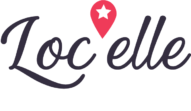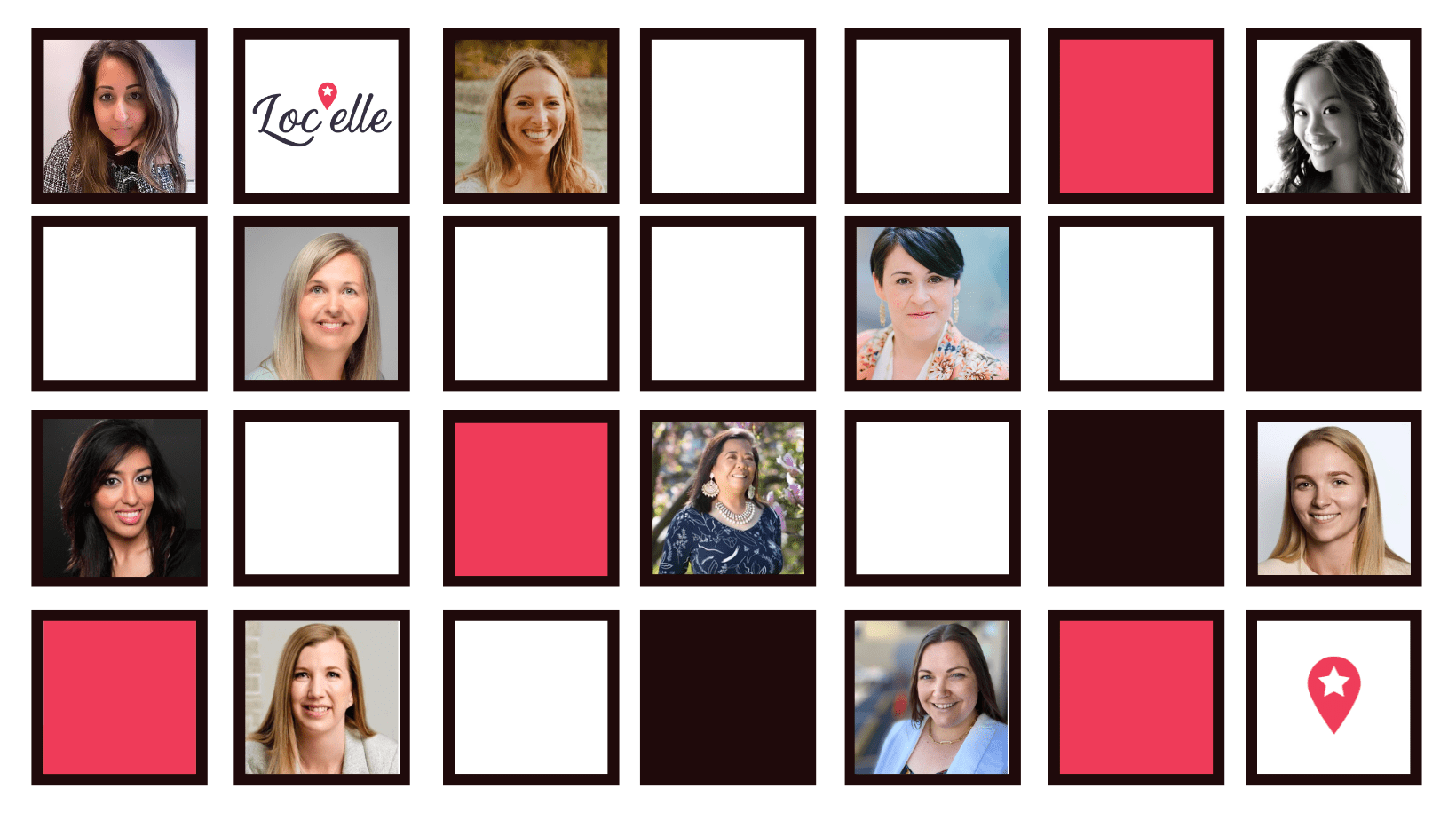
This year’s International Women’s Day theme is: DigitALL: Innovation and Technology for Gender Equality and our team at Locelle is honoured to profile 13 women leaders moving the needle for other women and helping create a gender diverse leadership pipeline through mentorship.
Having a mentor is a beautiful gift – especially to those underrepresented as they navigate the complexities of workplaces without a playbook of “how tos.”
In traditionally male-dominated industries, such as tech, due to lack of representation, it becomes even more critical to democratize access to mentors and leaders to get timely guidance.
In honour of International Women’s Day today, we are pleased to share a bit more about these incredible women who give their time, advice, guidance through shared stories to help elevate other women.
We hope they inspire you to give back and look for ways to help create a gender equal workforce today and tomorrow. Please join us in championing them and share this post with your network.
Happy International Women’s Day!
Best wishes,
Humaira Ahmed
Founder, Locelle

Noureen Syed is a Partner within IBM Consulting at IBM Canada Ltd. Noureen leads a practice team focused on helping Canadian organizations accelerate adoption of Data & AI, Analytics, Automation, D365 CRM/ERP, and emerging tech like Blockchain and Quantum to drive impactful transformations that are a catalyst of their innovation, customer service, business and operational efficiency goals.
Previously, Noureen held various other roles at Microsoft Canada, building on her passion for customer-centricity to drive customer digital transformations, problem solving via cloud technology, and driving cloud business strategy. Noureen is a Computer Engineer with Management Sciences option graduate from the University of Waterloo. Outside of work Noureen is a mom, traveler and loves staying active
Mentoring has been tremendously helpful for me through my career journey and I want to extend the same help to aspiring professionals. Mentoring is also an opportunity for me to get reverse mentoring, where I learn about the top of mind needs from other professionals and continue to broaden my understanding of market hiring, development and leadership needs of a diverse group.
How can we use innovation and technology for gender equality?
By putting diverse groups at the center of any innovation and technology, we can better serve the groups we are looking to create equality for. Do we seek the inputs of women to determine what their barriers to career advancement are and then do we verify if the solutions developed help solve those barriers? Without this input and feedback loop, we are simply creating solutions that may not be getting the anticipated results.

Lisa joined us as a mentor in 2022 with a strong people and culture leadership background. Lisa spent over 10 years building up teams, leadership capabilities and intentional work environments in the tech industry with fast-growing organizations such as Shopify. Lisa has joined Digital Moment last June. Digital Moment is a charitable organization focused on providing youth with digital skills for a prosperous future. Lisa has a deep passion for democratizing access to the best opportunities and experiences in life. She spends a lot of her professional and personal time focusing on equitable practices, diversifying teams in an intentional way and creating a sense of belonging. Empowering other women leaders in their work and contributions is a true passion. Lisa has written a book about self-development (Mind the Gap) that was published in February 2023.
I want to impact access to great career opportunities and provide support that I was grateful to have in my career development.
How can we use innovation and technology for gender equality?
The potential opportunities are wild here. Examples that come to mind are leveraging technology to identify bias in decision-making when it comes to hiring, promotions, compensation, etc. Innovating beyond the “normal norms” i.e. when we align our compensation to market data, the market data is biased with genderized roles. Get outside of those norms and compensate equivalent roles within your company even if the market is telling you that some male genderized roles should be paid higher than your female genderized roles.

With 15 years of business leadership experience, Nicole Dedeluk has held a variety of progressively senior and executive leadership roles in both operations and human resources. She has worked in a variety of industries and across the organizational spectrum, from start-ups and SMEs, to Fortune 500 companies.
Nicole is also an entrepreneur at heart. She and her partners nurtured a successful energy sector company from start-up phase into a flourishing, high-growth business. The business was recognized as one of the fastest growing companies in the province and was acquired after 8 years in operation. She has since started another company focused on executive and team coaching.
Nicole is passionate about partnering with business leaders to provide coaching, accountability, and new skills to help them achieve transformative results in their companies. When obstacles mount and outcomes feel uncertain, Nicole finds a way to empower leaders in finding new opportunities to help their business and teams succeed.
I am passionate about mentoring because it is an opportunity for me to pay forward the support, guidance, and inspiration I have received from the mentors I have had throughout my career. Through mentorship, I hope to inspire the amazing women I support to authentically overcome barriers and challenges, and to achieve their true aspirations in their lives and careers. I believe that mentorship is a powerful way to empower others to strive to be the best leaders they can be.
How can we use innovation and technology for gender equality?
Through innovation and technology, and especially in recent years, we have seen an incredible shift in how we can work and how we can access education. Technology has opened the door to new ways of participating in the workforce by providing flexible work options, remote work opportunities, and the ability to build a business and run it from anywhere. It has also made education more accessible through online learning platforms and through increased competition that has started to drive down the cost of education. More than ever before, technology has the potential to be a powerful catalyst for gender equality. Yet, while technology has allowed us to reduce traditional barriers to employment and education, it is critical to ensure that technology is designed and implemented in ways that are inclusive and address the specific needs of women and girls.
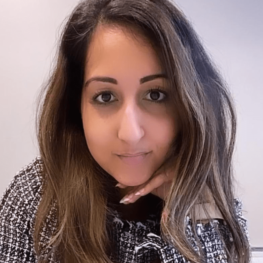
Natasha is the President & CEO of Career Contacts, Founder of Training Arch and Author of The HR Insider; how to land your dream job and keep it. Natasha is committed to supporting her clients through fraction HR services, contingency recruitment and formalized corporate training and development programs. She is also passionate about uplifting her community, volunteering her time as chair for the Dress for Success luncheon for the past 2 years, and serving on the Board of Directors of the Vancouver International Children Festival. Natasha was most recently recognised for both her early-career achievements and a clear dedication to their communities as the recipient of the Business in Vancouver Top forty under 40 award, and nominated for the Women of Distinction award through YWCA. Natasha is committed to lifting as she rises, focusing not only on the success of her companies and teams, but also for improved access for all those who find themselves faced with barriers.
Providing mentorship allows me to use the privilege of my experience and education and allow it to extend to those who may not have had the same access. It allows me to give back in meaningful ways, to inspire but also to learn from my mentees and build meaningful connections with mentees and fellow mentors.
How can we use innovation and technology for gender equality?
Gender equality and equity in general comes with the ability to create increased access, direct communication and avenues for more voices to be heard. Technology allows connect across countries, languages, financial diversity etc. Technology, like anything else, can be used to move us forward, when applied appropriately and effectively.

Compelled by a passion for empowering others, Vivienne Damatan has served in leadership positions across multiple industries including sales, corporate and educational recruitment, community-based organizations, human resources and technology—in three different countries. The steel that weaves its threads throughout her diverse background: a true commitment to human development, and an unwavering ability to meet change head on. Vivienne’s ability to maneuver through unique landscapes has strengthened her capacity to remain steady and focused as things get turbulent. Known as the “gentle spear,” one of Vivienne’s superpowers is piercing through the “story” to the heart of a problem, all while offering safe space and unreserved acceptance. She holds a psychology degree from the University of California, Berkeley, a graduate certificate in executive coaching from Royal Roads University, an ACC credential with the International Coaching Federation, and is the founder of Lead on Purpose Coaching and Consulting where she focuses on helping professionals create the lives and careers they actually want.
When I mentor, I get to meet my mentees exactly where they are, learn where they want to be , and then help them close that gap. Partnering with someone to help move them move a feeling of “stuckness” to a place of hope and possibility is one of the greatest honours of my life.
How can we use innovation and technology for gender equality?
I love that we’re starting to see more digital spaces, services and platforms created by women for women – or by women for everyone! Historically a vast majority of tech offerings were created by men, which naturally creates bias – intentionally or not. We still have a long way to go, but seeing more women stepping powerfully into tech has so much potential hugely impact gender equality. The more diverse voices, the more creativity, inclusion and innovation!

Jenna helps leaders and organizations achieve their goals. She has unique experience with over 12 years leading tech startup sales and 4 years coaching leaders with the altMBA. Her thoughtful approach leads to consistent and sustained growth helps organization get ready for scale. Jenna is from and based in Vancouver and she loves cooking, walking, traveling and being outside. She is the right person to talk to if you are looking for a book recommendation.
I love being a sounding board and mirror for other women. Watching them grow and realize that they already have everything they need inside of them is a delight. It helps me grow as well.
How can we use innovation and technology for gender equality?
Provide flexibility and tools for asynchronous work to allow women (and everybody) to shape their day to day in a way that supports the rest of their life.
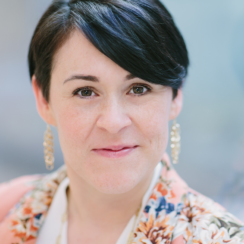
Genesa is a social justice advocate at her core. She has committed her 25-year career as a leader in the non-profit sector to catalyzing community change, sparking innovation, and developing deep and lasting relationships that will see our communities strengthened.
Genesa recently was appointed the CEO of the Vancity Community Foundation where she is being tasked to facilitate systemic change by leveraging the Foundation’s nearly $88 million in donor assets to build a sustainable future for British Columbians.
Prior to VCF, she served as the President + CEO of BC Women’s Health Foundation, Executive Director of the First United Church Community Ministry Society, and Director of Community Strategies and Resource Development at Union Gospel Mission.
Genesa also served as the Chief Operating Officer for Dream Corps, in Oakland, California, where one of the programs was #YesWeCode where we worked to connect the genius found in communities of color with the transformative potential of the tech industry.
There is no greater want to help ensure equity in the workforce than women mentoring one another. If I can help in some small way move someone along in their career, towards their hopes for themselves, then it is time well spent. I would not be where I am today if other women had not come alongside me to help me navigate the inevitable roadblocks and challenges.
How can we use innovation and technology for gender equality?
When I was working in Women’s Health, it became clear that FemTech could play a significant role in improving women’s access to high quality healthcare. To removing barriers to science + fact-based information, quality research, and community connection. Technology is a means to help women show up in spaces they have otherwise been unable to consistently access.

With over 20 years’ experience in learning and training, Meredith is a passionate HR professional and leadership coach that specializes in supporting managers, executives, emerging leaders, and teams focus on opportunities to foster positive change in themselves and the organizations they are part of. With experience in both private and public sectors, her holistic and empowering approach brings clarity, direction, and empowerment for her clients. Striving to find innovative possibilities, she loves helping teams and individuals find opportunities for development and growth, with an ultimate end goal of unleashing personal and professional potential. Meredith is an active member of the Chartered Professionals in Human Resources of British Columbia and Yukon (CPHR BC & Yukon) and the International Coach Federation. She holds Graduate Certificates in both Executive Coaching and Strategic Human Resources Management from Royal Roads University and is Dare to LeadTM trained.
For me, it is an honour and a privilege to act as a mentor to others. I have been fortunate to have had the gift of amazing mentors over the course of my career and the impact they have had on my life has been undeniably positive. Being a mentor with Lo’celle allows me to be that impactful someone for others. Through knowledge and experience sharing, curiosity and support, I get to assist others develop their skills and help them overcome challenges. It is an incredibly rewarding experience and I always learn something new about myself in the process.
How can we use innovation and technology for gender equality?
There are many ways, but the one that immediately comes to mind is that technology can provide greater access to education, allowing girls and women in rural areas access that they may not have had otherwise.
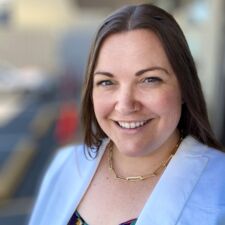
Jess spends her time working with people, helping them navigate the complexities of being human in the structure of business. She has been working in consultancies and high-tech companies for the majority of her career, and studied Communication, Business and Human Resources at Camosun College and Simon Fraser University. Jess’ personal values of curiosity, impact and authenticity guide her in all interactions and initiatives.
I mentor to connect and share my experiences. Provide support to others on their journeys. Share the info that I wish I’d had shared with me.
How can we use innovation and technology for gender equality?
Locelle is a beautiful example of this. It uses technology to connect women in different cities, different companies. It introduces leaders of today with leaders of tomorrow, when often their paths would not have crossed otherwise.
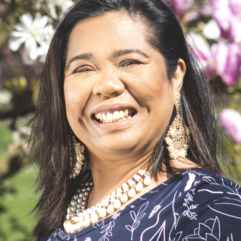
Dr. Khristine G. Cariño is a community connector and change catalyst. Social justice, anti-racism and inclusion are the cornerstones of her leadership. She draws on lessons learned overcoming the challenges put in front of her as a leader and an immigrant. In everything she does, in every organization she works with, she strives to increase the visibility and amplify the voice of women from under-represented groups.
She is co-founder of Tech2Step; director on the boards of the Women in Cybersecurity (WiCys) Western Canada Affiliate, Centre for Intellectual Excellence, and Cedar Cottage Neighbourhood House; and past president of the Society for Canadian Women in Science and Technology (SCWIST).
Khristine immigrated to Canada from the Philippines, as a postdoctoral research and teaching fellow at the University of British Columbia. Veering from the professorial track when she became a mother, she crossed over from academia to the non-profit sector and found fulfillment providing employment support to immigrant women in tech. Currently a mentor at Locelle and Women’s Economic Council, she draws on her experience of career reinvention and pivoting from work in clinical health care, university teaching, public health research, not-for-profit board governance and operations, digital communications and events, retail sales, and social entrepreneurship. Vancouver (unceded traditional territories of the xʷməθkʷəy̓əm Musqueam Indian Band, Sḵwx̱wú7mesh Squamish Nation, and səlilwətaɬ Tsleil-Waututh Nation) has been home for over 15 years for Khristine and her husband, who are raising three children being primed to be global leaders Canada would be proud of.
I find profound fulfillment in mentoring. It allows me to pay forward, honouring those who generously invested their time and themselves in helping me become a better person and to reach my personal and professional goals faster. Being a mentor also allows me to develop and foster deeper relationships with others and widen my circle of influence, often bringing along others who become invested and committed to bringing change where it is needed.
How can we use innovation and technology for gender equality?
Innovation and technology gender equality: access to every opportunity, unbiased by gender. Women and men have historically hold unequal power relationships when it comes to the use of technology. Gender norms and perceptions of technology have prevented women from fully participating in technological developments. Although women have historically contributed significantly to technological innovation as programmers and computer scientists, their influence is often invisible and unrecognized.The perception that ICT is overwhelmingly male-dominated creates a false sense of inferiority among women in the field. There are researches verifying the gender inequalities present while developing digital services and products, so that software tends to be most effective at meeting the demands of male users.
In the context of the above information,
- We need to remove the stigma of the so-called male-dominated sector, and let our young girls feel proud of the women’s contributions and the place they have earned in tech.
- We need to run new technologies awareness campaigns because women tend to be less informed about new technologies as compared to men
- Women underestimate their abilities and performance specifically in tech, while men overestimate them. It should be a goal of professional growth to help both men and women acquire realistic expectations.
- We must make sure that for the user studies and user experience, there is equal participation of all genders. Globally, there is unequal access to digital devices and the internet for men and women, and it aggravates the digital gender divide. Let’s provide more access to digital devices for women and girls.
HONOURABLE MENTIONS
These three incredible mentors consistently give back in many ways and are strong pillars of our community of women.

After working for big technology companies like SAP, Business Objects and Xerox, Jama founded The Growth Spark with more than 20 years of proven success record in innovation, technology, people management, and system, program, and performance management.
The Growth Spark is a women-led business consultancy focused on digital transformation to integrate data, process, technology and organizational change into all areas of your business so you can continue delivering value to your internal and external customers.
Best mentorship experience for me is being present: active listening and asking the right questions. Answers are within you.

Stephanie Redivo is an Equity, Diversity and Inclusion Leader at TransLink. With over 20 years of experience, in her role she has developed the framework for 3 employee Resources groups, has run the first inclusion survey and implemented Equity, Diversity and Leadership training for managers. A few of Stephanie’s areas of expertise include: Inclusive Leadership, Data Analysis, Change Management and Panel Moderation. With Locelle, Stephanie has mentored 6 women so far.
I am so grateful to be a mentor with Locelle because it has allowed me to hear from different women in different organizations. What I find interesting is that the topics I dealt with early on in my career are still around today.

Lorie is a strategic people and culture executive with 25 years experience in talent, culture and belonging strategy and implementation, executive coaching and leadership alignment, organizational development, diversity and inclusion, mental health and well-being, learning and development, and elevating workplace experiences that inspire purpose, connection, and impact.
Lorie is on a mission to co-create and cultivate values and purpose driven workplace cultures where people can grow and thrive, and feel they matter and belong.
To give back and elevate another human being.
